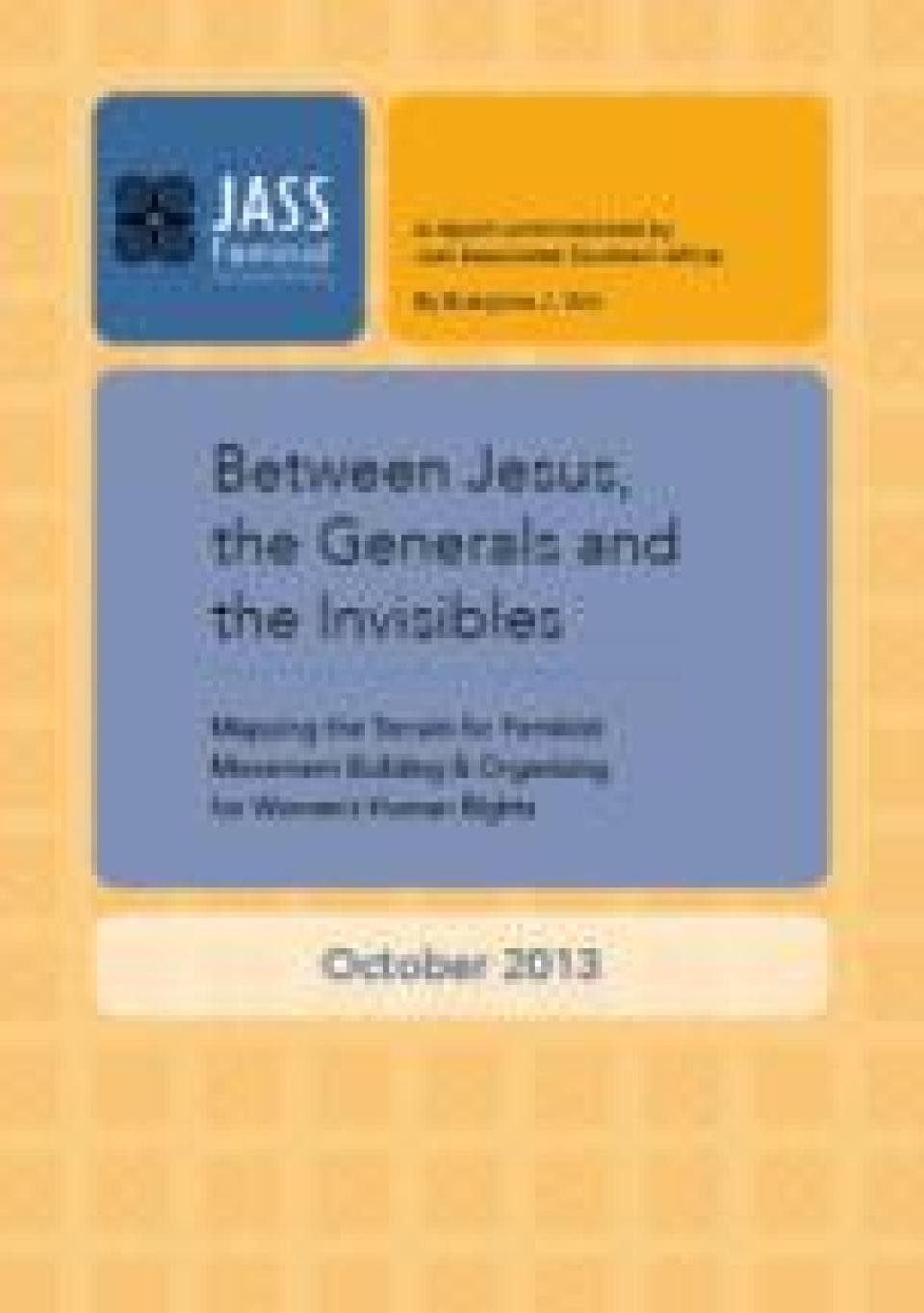
Read Everjoice Win’s timely critical analysis of the Southern African regional context through a feminist lens. Everything from the rise of the prosperity gospel and its impact on discourse about sex, sexuality and women’s bodies to the complex legacies of the sub-continent’s liberation struggles and new faces of militarism. With an in-depth focus on Malawi, Zambia and Zimbabwe (the three countries in which JASS supports work), “Between Jesus, the Generals and the Invisibles” is a razor-sharp snapshot of the region, its dynamics and trends as well as opportunities and challenges for feminist movement building and women’s rights agendas.
On the chapter republished by GenderIT.org “Twitter doth not a revolution make, but it maketh a difference”, Win says: “Cellphone usage in Sub-Saharan Africa has been one of the fastest to take root. In a context in which most citizens did not have access to landline telephony anyway, the mobile phone has been a boon to communication starved people. In addition, the fact that governance systems, processes and decision making in most African countries tend to be shrouded in secrecy and absolute opacity, social media and the internet have become the means through which citizens talk mostly about and on the odd occasion, TO their leaders.”
“It would appear that feminist organizing in Southern Africa has not quite modernized and is yet to find its new media voice. Most of the women’s organizations still use their old spaces – which it must also be acknowledged took a long time to fight for and acquire,” she adds.
“There are lots of questions that feminist movements and their leaders need to grapple with as they seek to understand the context in which they want to reach, organize and talk to women,” the author concludes. Some of them are: “Who is the woman we are talking to, or about today? Where she is? What do we know about her? Her reading habits? Her communication habits? Her entertainment hobbies? What does her day look like – which determines what she can or can’t listen to, watch, or even physically participate in? Is she in a rural or urban area?”
On the chapter republished by GenderIT.org “Twitter doth not a revolution make, but it maketh a difference”, Win says: “Cellphone usage in Sub-Saharan Africa has been one of the fastest to take root. In a context in which most citizens did not have access to landline telephony anyway, the mobile phone has been a boon to communication starved people. In addition, the fact that governance systems, processes and decision making in most African countries tend to be shrouded in secrecy and absolute opacity, social media and the internet have become the means through which citizens talk mostly about and on the odd occasion, TO their leaders.”
“It would appear that feminist organizing in Southern Africa has not quite modernized and is yet to find its new media voice. Most of the women’s organizations still use their old spaces – which it must also be acknowledged took a long time to fight for and acquire,” she adds.
“There are lots of questions that feminist movements and their leaders need to grapple with as they seek to understand the context in which they want to reach, organize and talk to women,” the author concludes. Some of them are: “Who is the woman we are talking to, or about today? Where she is? What do we know about her? Her reading habits? Her communication habits? Her entertainment hobbies? What does her day look like – which determines what she can or can’t listen to, watch, or even physically participate in? Is she in a rural or urban area?”
Year of publication
2013
- 4021 views





Add new comment